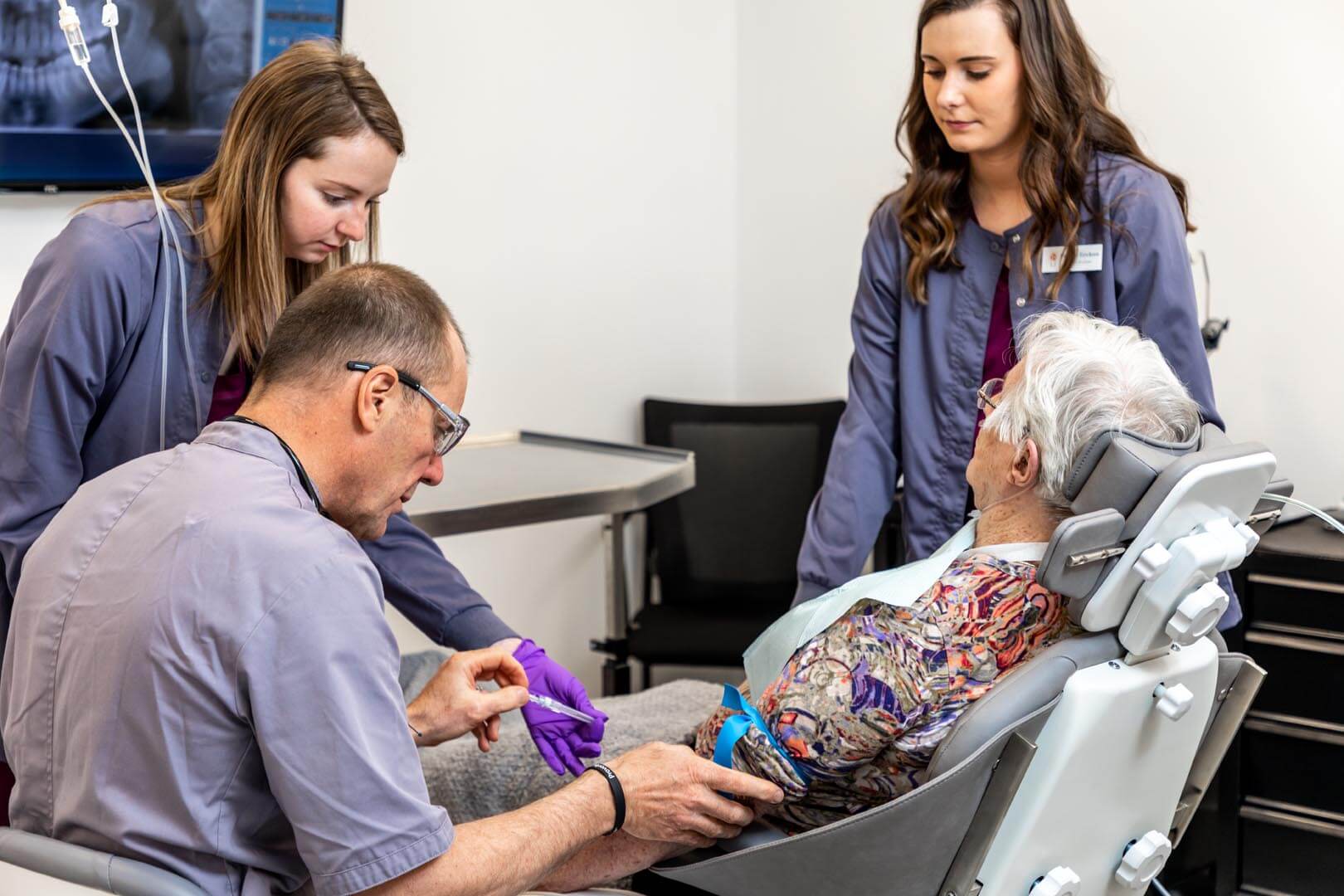
Who administers the anesthesia?
Our Oral and Maxillofacial Surgeons (OMSs) are extensively trained and experienced in all aspects of anesthesia administration. Following dental school, they complete at least four years of training in a hospital-based surgical residency program alongside residents in general surgery, anesthesia, and other specialties. As a result of this training, our OMSs are able to appropriately administer all forms of sedation and anesthesia needed for your oral surgery. They are also experienced in airway management, endotracheal intubation, establishing and maintaining intravenous lines, and managing complications and emergencies as they may arise during your procedure.
Will my surgeon explain the anesthesia process?
Before your surgery, your OMS will review with you the type of anesthetic to be used as well as the way you’ll likely feel during and after the operation. This is when you can discuss any of your concerns about the anesthesia or procedure and have your surgeon explain, in detail, anything you’d like.

Types of Oral Surgery Anesthesia
Different procedures may require different levels of anesthesia, and your surgeon will discuss with you which option is best for your procedure. Here are the options we offer at Tennessee Valley Oral Surgery:
This is the type of anesthesia we use for most of our procedures. General anesthesia involves a combination of medications that will put you to “sleep” before your procedure. Under this type of anesthesia, you will be completely unconscious and you will not respond to reflexes or pain signals while under general anesthesia.
Which type of anesthesia is right for my procedure?
The type of anesthesia used for your procedure will be determined through a consultation with your surgeon. They will assess things like the invasiveness of your procedure, your level of anxiety, and more to determine which option is best for you. This will vary from person to person and procedure to procedure.
Schedule your consultation
Are you ready to take the next step in your oral health? Schedule a consultation with one of our experienced surgeons today.
